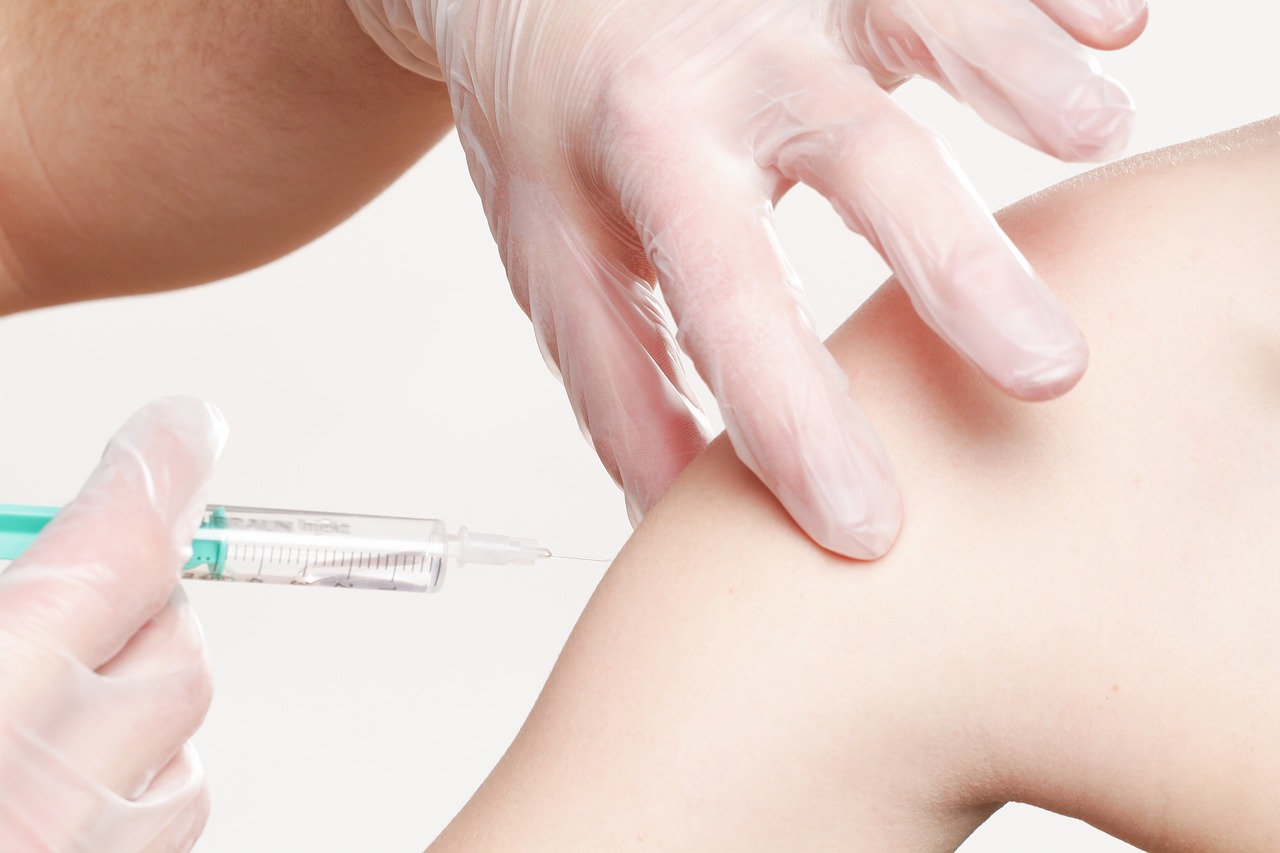Is there a link between vaccines and autism? This question has been at the center of an ongoing debate ever since the Centers for Disease Control (CDC) began reporting that autism was on the rise in the United States and around the world.
Currently, about 1 child out of every 68 will be diagnosed with Autism Spectrum Disorder (ASD), which is classified as a developmental disability. Whenever there is an increase in a disorder or disability, people start looking for reasons for the change. Since ASD can be seen in a child as young as the age of two, research has focused on the factors early in life that might contribute to an autism diagnosis. From birth, children receive many immunizations, so fears have been raised of a possible connection between these vaccines and autism.
In particular, there have been concerns about the measles, mumps, and rubella (MMR) vaccine and thimerosal, a mercury-based preservative that had been used in MMR and other inoculations. Since 2003, nine studies have been conducted into the relationship between thimerosal and ASD, however the Institute of Medicine has determined there is no link between the vaccine and the development of autism.
In reaction to concerns about whether thimerosal in vaccines and autism were related, the preservative was either removed from vaccines or reduced to negligible amounts between 1999 and 2001. Today, this preservative has been limited to use only in multi-dose vials found in some flu vaccines. If you are still worried, however, you can request your child receive a thimerosal-free vaccine.
Additionally, a 2013 study by the CDC determined there is no link between vaccines and autism. It looked at the number of antigens (they help the body’s immune system fight disease) and found no difference between children with ASD and children without the disorder.
What Causes Autism?
The CDC is currently conducting research to find out if autism has an environmental, biological, or genetic cause. There are many categories of disability along the autism spectrum and, at this time, specialists haven’t found any one specific reason for the development of the disorder. We do know, however, that there are factors which can indicate a higher chance that a child will develop autism. These components are:- Children with autistic siblings are more likely to develop the disability.
- Children born to older parents are more likely to be at risk.
- It is thought that the critical developmental time for ASD is in utero, or in the period during or immediately after birth.
- The prescription medicines valproic acid and thalidomide have been linked to a higher ASD risk in the infant, when these medications were taken during the pregnancy.
- ASD occurs more often in people who have certain chromosomal or genetic conditions (for example: Fragile X Syndrome).
What are the Early Signs of Autism?
Although autism can affect either gender, the disorder occurs about 4.5 times more often in males than in females. It is found in every socioeconomic, racial, and cultural background, although it is more prevalent in white children than in African-American or Hispanic children. People with ASD may have problems communicating or interacting with others, or may have difficulty focusing or learning. Additionally, early signs of Autism Spectrum Disorder may include:- Lack of interest in objects or in relating to people
- Avoiding eye contact
- Preferring to spend time by themselves
- Becoming upset if routines change
- Unusual reactions to stimuli, such as smells, tastes, textures, or sounds
- Repeating words or phrases or repeating actions over and over
Diagnosis, Evaluation, and ASD Treatment
Although there is no cure for ASD, early intercession can reduce the severity of a child’s developmental delays and can teach them important skills. The earlier a child is diagnosed and begins treatment, the better their chances of reaching their full potential. ASD treatment and early intervention can begin as soon as 3 months of age. If you are concerned about your child and the way they interact with you or others, the way they speak or act, or the way they learn, the first step is to call your child’s pediatrician and discuss your worries. Your child’s doctor can help answer your questions and, if alarmed, should refer you to specialists for further evaluation. Psychologists, psychiatrists, developmental pediatricians, and/or pediatric neurologists are specially trained to assess and diagnose Autism Spectrum Disorder. Additionally, if you need a free assessment, you can contact your state’s early intervention programs. To find out more about your particular state’s Child Find evaluation, visit the Early Childhood Technical Assistance Center.Our Children’s Center Can Help
If you have questions about the early signs of autism, treatment and intervention, or have other autism-related concerns, the professionals at our child-focused department, The Children’s Center, can help. For more information, contact the Children’s Center for Psychiatry Psychology and Related Services in Delray Beach, Florida or call us today at (561) 223-6568. SaveDr. Andrew Rosen
Dr. Andrew Rosen PHD, ABPP, FAACP is a Board-Certified Psychologist and the Founder and Director of The Center for Treatment of Anxiety and Mood Disorders, as well as, the Founder of The Children’s Center for Psychiatry Psychology and Related Services.





